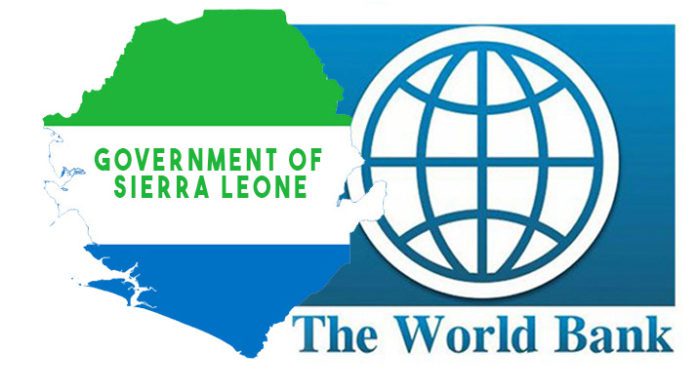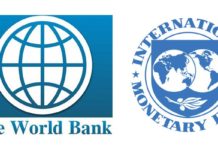
WORRYING SIGNS: WILL THE SIERRA LEONE GOVERNMENT REVIEW ITS WORLD BANK APPROACH?
by Mahmud Tim Kargbo
The swift departure of Penny Goldberg from the Chief Economist role at the World Bank is a good example of what can happen when the worlds of public officialdom and academia combine. Or, in this case, clash.
Initially, the relationship is mutually beneficial—the institution’s reputation is raised through its union with top-drawer talent, while the academic has a chance to shape policy. The academic typically refuses to follow the party line and claims that the institution’s work is flawed, which results in an eye-catching way of breaking up after the honeymoon.
Now it’s very clear: poverty in the developing world is intractable because the World Bank trained its employees on how to partner with local elites to syphon money meant to tackle poverty and promote genuine democracy in the developing world. Maybe these are worrying signs for Sierra Leone having many people in our social positions of trust trained by neo-colonialist and imperialist organisations. Many harbour no doubt, seeing the country’s economy drop to four percent after blocking all leakages by the Bio-led government.
Before we’ve seen it—most notoriously between Joseph Stiglitz, another former World Bank Chief Economist, and the Bank’s sister organisation, the IMF.
The specifics of the chief economist’s departure are not known, with Goldberg herself saying nothing ahead of her return to Yale. However, the article makes a connection between the departure and research into bank aid getting into the wrong hands that her department had reviewed but that higher-ups allegedly blocked from publication:
https://www.forbes.com/sites/oliverwilliams1/2020/02/20/corrupt-elites-siphen-aid-money-intended-for-worlds-poorest/
After aid to a country spike, money departs for offshore havens. And after a sensitive paper is spiked, Penny departs for New Haven.
The work is the fruit of three economists. Two—Jørgen Juel Andersen of BI Norwegian Business School and Niels Johannesen of the University of Copenhagen and CEBI—have in recent years looked at where monies meant for the poor in developing nations go (surprise: usually into bank accounts in financial havens). The final contributor is the World Bank’s Bob Rijkers.
The paper shows that monies as aid flow well—into the pockets of the elites in the recipient country and not to those that it is meant to help. Ironically, this finding is reached through the use of the World Bank’s project database.
The study uses quarterly data on aid payments from the World Bank, which includes information on the 22 most aid-dependent countries, such as Sierra Leone. It also uses banking statistics from the Bank for International Settlements, which show how money moves between the aid-receiving country and safe havens like Switzerland, Luxembourg, the Cayman Islands, and Singapore, where privacy and protecting assets are very important. For comparison, the research also looks at flows between the recipient country and Germany, France, and Sweden—places not as vaunted for their banking secrecy. Scenarios that you would expect to lead to higher inflows and outflows, such as wars or financial crises, are excluded.
In a quarter where a country receives aid equivalent to 1 percent of GDP, its deposits in havens increase by over 3 percent relative to a country receiving no aid; there is no increase in deposits held in non-havens. This, on average, means 7.5 percent of aid is “leaked”.
There is compelling evidence too to support the idea that the higher the aid contribution and the more reliant a country is on aid, the more is syphoned off by elites, with the leakage figure for the most aid-dependent nations rising to 15 percent.
The economists acknowledge that the research has its limitations. For instance, it is impossible for them to tell who is moving the funds out of the country, with the BIS statistics only counting the total flows per quarter between countries.
Yet their argument that the results offer “salient and plausible” evidence that elites in several of the world’s poorest countries are syphoning off aid is compelling.
The very rich hold most accounts in havens, according to recent research from data leaks and tax amnesty documents. The fact that most of the outflows occur at more or less exactly the same time as the inflows strengthens their case too. And if it is businesses shifting the funds they gain from aid projects, then why are we not seeing a rise in deposits held by non-havens?
So what’s the case for the World Bank to withhold publication of the research? Well, it is clearly highly embarrassing that an organisation that aims to do good in developing countries may exacerbate the already wide chasm between the haves and have-nots. What the research also reveals is the World Bank’s futility: there is no way around the problem. In most countries, their presence is small, and the chances of the local staff being able to police corruption are limited.
To me, that is a scant reason to keep the research from public view.
While there is always a chance of embarrassment, in the long run, it is better for the reputation of public institutions to encourage differences of opinion than to allow groupthink to stymie their work.
If top economists fear that their work will be toned down and remain in academia, they will lose out too. Would the World Bank have been so willing to part with its data if the academics had not been working in collaboration with someone within the bank?
If public institutions don’t allow for research independence within their structures, bad policies will continue to be in place, unchallenged by those who worry that doing so will jeopardise their careers. And that is in the interests of no one, especially the world’s poorest.




